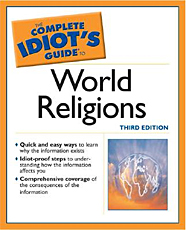Beyond Words, Beyond Mind
Yet another oft-repeated message of the great religions of the world — one echoed by certain lay observers whose work points them toward what might be called "ultimate" conclusions about the universe — concerns the inherent limitations of the human intellect. Ultimately, the great faiths counsel, childlike simplicity, rather than overbearing intellect or rigorous logic, is required for true union with the Divine. Variations on this observation appear countless times, and in countless ways, in the religious practices, writings, and commentaries that have come down to us through history. A representative sampling follows.
Voices: The Limits of the Logical Mind
Note the skepticism of human logic and reason in the quotes that follow:
"Buddhism: The true path is only difficult for those who make distinctions. Do not like, do not dislike. Then everything will become clear. ("On Trust in the Heart," Master Seng Ts'an)
"Christianity: Eye hath not seen, nor ear heard, neither have entered into the heart of man, the things which God hath prepared for them that love him. (1 Corinthians 2:9)
"Confucianism: The presence of the Spirit: It cannot be surmised. How can it be ignored! (Doctrine of the Mean 16)
"Christianity: All that the imagination can imagine and the reason conceive and understand in this life is not, and cannot be, a proximate means of union with God. (St. John of the Cross)
"Hinduism: Eye cannot see, nor words reveal him; by senses, austerity, or works he is not known. (Mundaka Upanishad 3.1.8)
"Islam: He is far above the conceptions of those who refuse His existence, and also of those who imagine His attributes in various expressions of nature. (Nahjul Balagha, Sermon 54)
"Judaism: Behold, I go forward, but He is not there; and backward, but I cannot perceive him; on the left hand, when he doth work, but I cannot behold him; he turneth himself to the right hand, but I cannot see him. (Job 23:8, 9)
"Taoism: The True Man of ancient times knew nothing of loving life, knew nothing of hating death. He emerged without delight; he went back in without a fuss. He came briskly, he went briskly, and that was all. He did not forget where he began; he did not try to find out where he would end. He received something and took pleasure in it; he forgot about it and handed it back again. (Chuang Tzu 6)"
